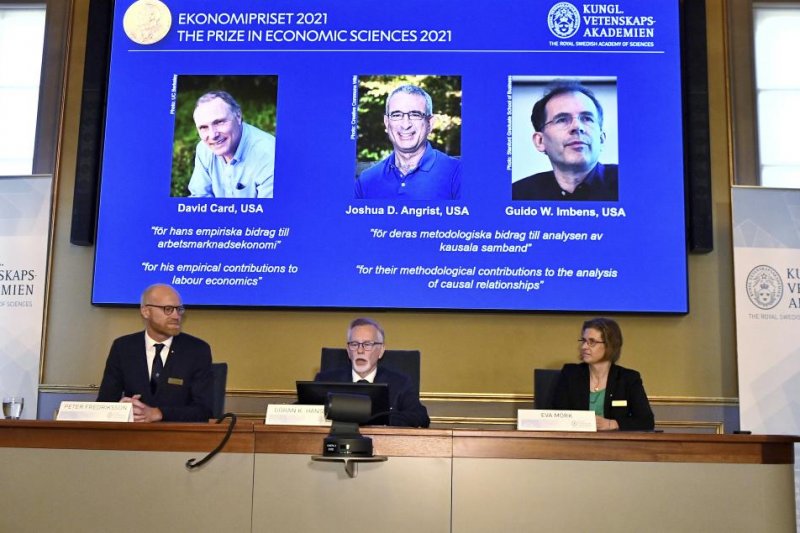
Oct. 11 (UPI) — Three U.S. economists were awarded the Nobel Memorial Prize in Economic Science on Monday for their work on how the labor market is influenced by various factors, like minimum wage and immigration.
The Sveriges Riksbank Prize in Economic Sciences, which is a semiofficial Nobel Prize, was given to David Card. Joshua D. Angrist and Guido Imbens, the Royal Swedish Academy of Sciences announced.
Card was awarded half of the prize and the other half was awarded to Angrist and Imbens.
A professor at the University of California, Berkeley, Card was recognized for “empirical contributions to labor economics.” Angrist of the Massachusetts Institute of Technology and Imbens of Stanford University were noted for their “methodological contributions to the analysis of causal relationships.”
The academy said that by using “natural experiments,” Card, Angrist and Imbens have been able to study and respond to the economic impact made by immigration, education and other issues.
Card’s analysis of the labor market effects of minimum wages, immigration and education challenged conventional wisdom that suggests increasing the minimum wage leads to fewer jobs. His work also showed that incomes of people who were born in a certain country can benefit from new immigration.
In the mid-1990s, Angrist and Imbens demonstrated how precise conclusions about cause and effect can be drawn from natural experiments. Their work helped quantify the impact education has on the future of young people entering the workforce.
“Card’s studies of core questions for society and Angrist and Imbens’ methodological contributions have shown that natural experiments are a rich source of knowledge,” Peter Fredriksson, chair of the Economic Sciences Prize Committee, said in a statement.
“Their research has substantially improved our ability to answer key causal questions, which has been of great benefit to society.”
The economics prize is not among the five major Nobel Prizes, which were established in the will of Alfred Nobel. It was created by Sweden’s central bank in 1968 as a tribute to his memory and is considered a semiofficial Nobel Prize.
This year’s winners of the five major prizes — for physiology or medicine, physics, chemistry, literature and peace — were announced last week.